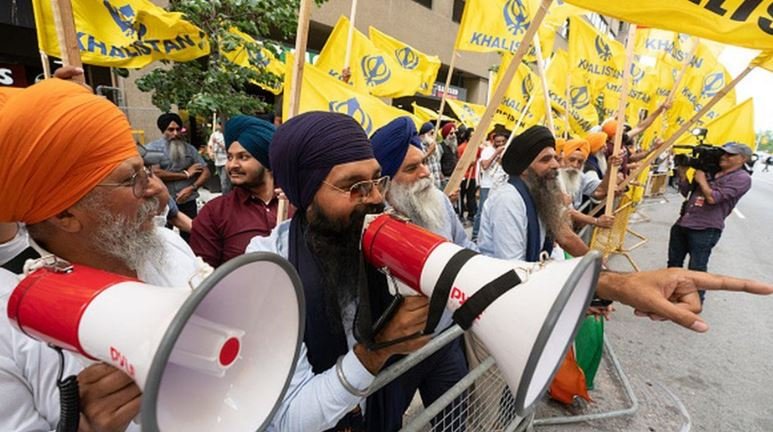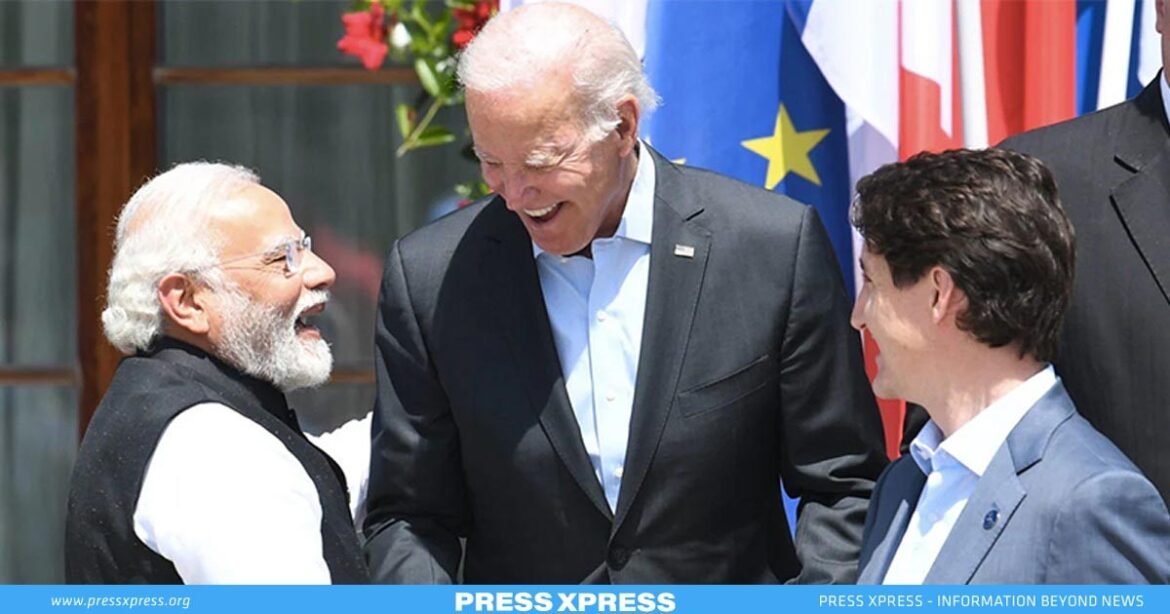As tensions escalate between India and Canada in the aftermath of the murder of a Sikh separatist leader in British Columbia, the Biden administration has maintained a notably low profile. The White House is unlikely to amplify its voice in this matter in the near future.
On October 3, 2023, New Delhi took a significant step by expelling 41 out of Canada’s 62 diplomats. This move comes as a response to Prime Minister Justin Trudeau’s accusation that India may have played a role in the killing of Hardeep Singh Nijjar. Nijjar is a Sikh leader who was fatally shot outside Vancouver in June, 2023. The diplomatic sparring between the two nations has been relentless ever since Trudeau’s accusatory remarks. Which resulted in diplomats being expelled and both sides publicly chastising each other, and there seems to be no resolution in sight.
India’s standoff with Canada intensifies
In late September, U.S. National Security Adviser Jake Sullivan made it clear that the United States is actively engaging with high-level Indian officials in the wake of Ottawa’s allegations concerning the murder of the Sikh separatist leader in Canada. Sullivan emphasized that Washington is treating India no differently from any other nation in this matter. It’s worth noting, however, that India has vehemently rejected Canada’s allegations, deeming them “absurd.” This crisis has further strained Canada-India relations.
The escalating situation has placed several Western nations in a challenging predicament. Canada has long been a trusted partner and ally to these countries. Simultaneously, these nations are eager to forge strong ties with New Delhi as part of their strategy to counter China’s influence in the Asia Pacific region.
“Clearly, we are facing an exceptionally challenging period in our relationship with India at this time. However, that’s precisely why it’s crucial for us to maintain a diplomatic presence in the region, with our diplomats actively engaging the Indian government and providing support to Canadians and Canadian families,” remarked Prime Minister Trudeau on the expel of Canadian Diplomats from India. He emphasized the gravity of the situation and the commitment to engage responsibly and constructively with the Indian government.
Canadian Foreign Minister Mélanie Joly echoed this sentiment, affirming her ongoing communication with the Indian government. “We will continue these discussions privately because we believe that diplomatic dialogues are most effective when conducted discreetly,” Joly stated.
It’s important to note that India has, for years, accused Canada of harboring Sikh separatists, including Nijjar. In response to the recent tensions, India has cancelled visas for Canadians, while Canada has refrained from retaliatory actions. Notably, India had previously expelled a senior Canadian diplomat after Canada took similar action against a senior Indian diplomat.

U.S. takes backseat
The US is exercising caution, as it hopes that with Canada taking the lead on this issue, it can prevent a significant fracture within the alliance.
For the time being, the United States has opted to play a minor role in this escalating conflict. The U.S. appears content with allowing events to unfold while urging cooperation. All these steps are being followed to avoid upsetting Indian Prime Minister Narendra Modi, with whom the White House has worked diligently to strengthen relations. Christopher Sands, the director of the Wilson Center’s Canada Institute, noted, “We’re trying not to lose India over confronting Modi’s behavior or inaction unless something demonstrates a departure from the expected norms within the Western alliance.”
The White House is navigating a delicate balancing act. While it has been reported that Washington provided intelligence that contributed to Trudeau’s accusation, the Biden administration is keeping its distance from the matter in public discourse. National Security Council spokesperson John Kirby emphasized, “Let these two countries address their bilateral relations.”
However, it’s worth noting that last week, Secretary of State Antony Blinken urged Indian officials to cooperate with Canada, according to reporters. National Security Advisor Jake Sullivan also engaged in discussions with New Delhi’s foreign minister, although specific details from these talks remain undisclosed. State Department spokesperson Matthew Miller confirmed that the U.S. is in ongoing discussions with the Canadian and Indian governments regarding the situation.
The U.S. is exercising caution, as it hopes that with Canada taking the lead on this issue, it can prevent a significant fracture within the alliance, according to Sands. “Canada will raise the charge… and what we would love to see now is not this escalation – actually the reverse, finding a way to cooperate.”
However, some members of the Biden administration are concerned that their relationship with Modi could become more strained in the short term. A State Department official, familiar with the issue and speaking on condition of anonymity due to its sensitivity, informed NatSec Daily of this perspective. U.S. Ambassador to India Eric Garcetti has conveyed to his team in India that due to the diplomatic dispute with Canada, relations between the U.S. and India might experience a challenging period. Garcetti also mentioned the possibility of reducing contacts with Indian officials for an unspecified duration.
U.S. Prioritizes Delicate Diplomacy
When approached for comment on the matter, a State Department spokesperson, also granted anonymity due to the diplomatic sensitivity, provided a straightforward response: “We don’t have anything for you on this.” The spokesperson emphasized Ambassador Garcetti’s commitment to the strong partnership between the U.S. and India, highlighting the importance of their strategic and consequential relationship.
For now, private discussions between Ottawa and New Delhi will persist, as Canadian Foreign Affairs Minister Mélanie Joly informed reporters. It appears that Washington will largely maintain a passive stance in the matter. As Milan Vaishnav, director of the Carnegie Endowment for International Peace’s South Asia program, noted, “The U.S. is going to walk this tightrope as delicately and cautiously as it can. It knows India will not respond to overbearing hectoring, but it also can’t throw its neighbor and NATO ally, Canada, under the bus.”


